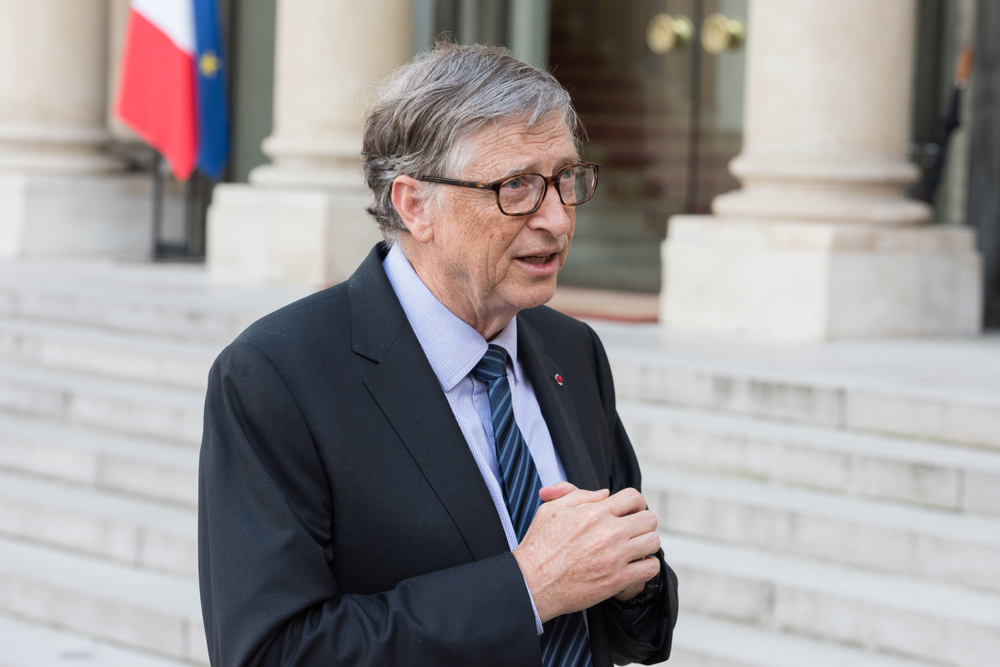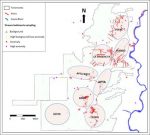The mining industry is in a contest with the environment, and the industry and investors are demanding more every day. Implementing zero-carbon policies and approaches to mining from the get-go, making sure the projects are carbon optimized and planning from the beginning with a zero carbon emissions footprint is the new standard.

What the Experts Say
Climate watchers aren’t the only ones paying attention to the seismic shifts in the race to zero-emissions. Philanthropist Bill Gates is also sounding off on the need to get to zero as soon as possible. In his new book “How to Avoid a Climate Disaster”, he lays out all of the ways that private industry, governments, and the mining and energy industries need to come together to bring the current global emissions level of 51 billion tons of greenhouse gases to zero.
He writes: “There are no realistic paths to zero that invol
ve abandoning these fuels completely or stopping all the other activities that also produce greenhouse gases (like making cement, using fertilizer, or letting methane leak out of natural gas power plants). Instead, in all likelihood, in a zero-carbon future we will still be producing some emissions, but we’ll have ways to remove the carbon they emit”.
Bill understands that from now on, businesses, governments, and miners will need to balance their profitable production with zero-carbon strategies like buying offsets and using carbon capture to bring emissions to “net-zero”.
Business
Companies around the world will need to change equipment, processes, and where they get their energy from to accommodate the shifts in energy policies and expectations from investors. Producing and selling isn’t enough anymore when the need to have a zero-carbon strategy for all projects is the new normal.
Governments
Policy is the best way to make large-scale changes, and governments in countries both rich and poor will need to set the standards from the top. Unfortunately, it is very difficult to make a new policy, but changing current policies that are outdated and selected for the needs of the past is a great first step.
For Miners
The global mining industry is a behemoth that allows everything to function. Without the mining industry and the copper it produces, the device you’re reading this on would not exist. Miners now have a priority for stakeholders to implement strong ESG (environmental, social, and governmental), from the start. Zero-carbon strategies are expected in the planning stages of projects to include a comprehensive plan for how a project is going to honour important environmental commitments.
Clean Metals
The electric vehicle industries and many other consumer sectors are looking for zero-carbon metal solutions and they want them now. While many countries have set 2050 time frames for their climate goals, the mining industry is set to make those changes within the decade, beginning with the first steps over the past few years.
Especially with metals that are preferred sources for powering the clean energy changes like nickel or copper, a commitment to net-zero carbon production is the commitment that investors are looking for from companies now.
Strategies and Offsets
To both protect the environment, consumers, and any stakeholders involved, companies are now calculating the CO2 emissions in tons per kilogram of a metal mined. Having their carbon footprint quantified takes it out of the abstract and into a solvable problem. To produce metals for an electric vehicle battery pack, for example, a certain amount of emissions will be assigned per ton of copper or nickel and an offset or strategy needs to be implemented to achieve a net-zero objective in the process that includes mining, milling, and processing.
Shovels and Trolleys and Hydroelectric, Oh My!
There are a few tools being put in place to reduce the carbon footprint of mining, including electric rope shovels, trolley trucks, hydroelectric electricity instead of diesel fuel, and the deposition of waste rock and tailings during the mining process. By using electric rope shovels and trolley trucks that use electricity instead of diesel fuel emissions are lower for both extracting and transporting mined materials.
Just changing from diesel to electricity for the trolley trucks as well as during the deposition process reduces carbon emissions significantly. Hydroelectric electricity and other clean energy sources will help in the mining, milling, and processing steps of the projects, and companies that implement these steps from the start of the project are having great success in maintaining those clean energy solutions.
Management Driving the Initiative
Often implementing these steps from the get-go of an initial project planning means including leadership that understands the strategies. Companies like BHP Group have implemented leadership changes to do this in the past and many companies have officers well-versed in the needs of zero-carbon projects to implement their approach to project planning from the start.
Another leader in planning projects with a zero-carbon strategy is Solaris Resources. The copper miner with projects in Ecuador at the Warintza mine is starting off on the right foot for their existing and new project plans by implementing production and operational strategies to achieve zero carbon projects right from the start.
For the company’s Warintza Project in Ecuador, Vice President of Projects Chad Wolahan will be leading the company through the Preliminary Economic Assessment (PEA). The assessment will require technical studies and a review of engineering practices along with the economic assessment of the project. By taking a big-picture perspective for this project, companies like Solaris can implement global best mining practices aimed at reducing or eliminating carbon footprints right from the start of a project.
The Warintza project is a prime example of a full-spectrum zero-carbon approach to projects. To power the project, Solaris connects to a hydroelectric grid, uses electric transport for the movement of materials, and ensures efficiency at every stage of the project by using autonomous technologies. All of these strategies will create a cohesive zero-carbon project that satisfies all stakeholders.
With the assessment expected to be completed in early 2022, the Warintza project is a prime example of the need to get ahead of the curve and start projects with a zero-carbon approach instead of waiting for regulations or rules to be imposed later
Daniel Earle, President & CEO of Solaris is driving the process along with Mr. Wolahan: “Warintza benefits massively from the excellent infrastructure surrounding our project in Ecuador, including a road connection to the highway network, and access to the national power grid supplying abundant, low cost, renewable hydroelectric power. We intend to maximize the benefits of this in eliminating emissions through the electrification of our rolling fleet, materials movement, and processing solutions. Our intention is to employ industry best practices in emission reduction to help meet global climate goals towards a more sustainable future.”
Zero-Carbon Is the New Normal
As the mining industry starts new projects and overhauls existing ones, the benefits will trickle down to stakeholders in the communities they operate in, and to investors who trust that management has their eye on the ball for this critical operational area. Investors looking for embedded ESG (environmental, social, and governmental) principles in projects will also prioritize the companies with managers like Chad Wolohan to lead miners like Solaris Resources and BHP Group that do this best.
Business and philanthropic thought leaders like Bill Gates note that now, not in a few decades is the moment for change. The mining companies that do this best will come out on top over the long run.
The above references an opinion and is for information purposes only. It is not intended to be investment advice. Seek a licensed professional for investment advice. The author is not an insider or shareholder of any of the companies mentioned above.
If you would like to receive our free newsletter via email, simply enter your email address below & click subscribe.
CONNECT WITH US
Tweets
Tweet with hash tag #miningfeeds or @miningfeeds and your tweets will be displayed across this site.
MOST ACTIVE MINING STOCKS
Daily Gainers
 Pacific Booker Minerals Inc. Pacific Booker Minerals Inc. |
BKM.V | +81.82% |
          |
MTB.V | +50.00% |
          |
ADD.V | +50.00% |
  |
ERL.AX | +33.33% |
          |
CASA.V | +30.00% |
          |
CRB.V | +25.00% |
          |
RKR.V | +25.00% |
          |
ABI.V | +22.22% |
          |
SRI.V | +20.00% |
          |
BEA.V | +20.00% |
Articles
FOUND POSTS
Orosur Mining (TSXV:AIM) Provides Update on Exploration at Anzá Project
December 31, 2024

 Follow us on Twitter
Follow us on Twitter Become our facebook fan
Become our facebook fan







